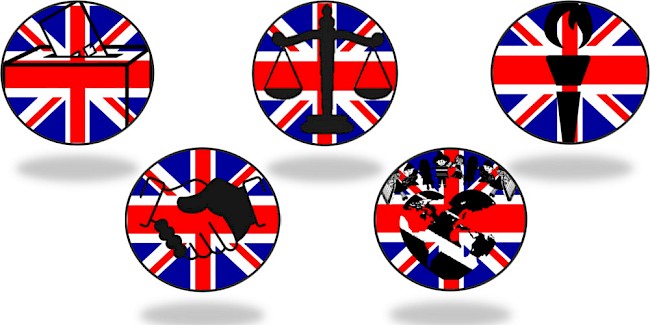Individual liberty
Individual liberty involves the freedom for people to choose their own paths and, crucially, to reach their own potential. It is thus strongly linked to opportunity. At the Rochester Grammar School, the opportunity for every child to achieve lies at the heart of everything that we do. This is represented, in part, with our curriculum, that allows choice of which option subjects that students wish to pursue further at GCSE. Furthermore, the IB curriculum in sixth form offers a huge range of subjects, meaning that students do not need to narrow their choices, as happens with more traditional A Levels- allowing the opportunity to develop a more rounded knowledge and interest base. Beyond the curriculum, students have the opportunity to engage in a multitude of extra-curricular and supra-curricular opportunities, with notable examples including the school production, participation in sports and the school choirs. Students have also created clubs and debating groups to promote career paths that have interest to them, such as law and medicine, which help to open the eyes of younger students to the opportunities that they have in life.
Individual liberty is also synonymous with the idea of individual rights and the importance and development of these is explored in the school curriculum. For example, the idea of rights is central to the Geography curriculum, with examinations of, for example, the UN Development Goals. The development of rights in the UK and abroad is examined in History lessons regularly, such as through the unit that looks at women’s rights. Gender issues, so important in preparing our students for the world, are also explored in the KS5 English curriculum. Liberty also forms a key theme in the Drama curriculum, where victims of persecution are looked at, for example in the plays of Brecht.
Mutual Respect
In a school community with well over a thousand members, the idea of mutual respect is crucial, as without it, such a society would not function. The idea of respect is therefore at the centre of our behaviour policy, with the four “respects” being the basis of this: respect for others, respect for the environment, respect for learning and, hugely importantly in an age where mental health is such a challenge, respect for yourself. Thus, the entire behavioural policy and systems are based on developing these values. These ideas are also regularly developed upon during tutorial sessions and assemblies in the mornings before regular lessons commence. Furthermore, there are multiple opportunities for student leadership and collaboration that aim to engender these values, such as student led choirs, clubs and events, from the opportunities for organisation offered to the team of executive, subject and house officers. The majority of students in Yr9 also participate in the Duke of Edinburgh’s award scheme, where leadership, respect and teamwork are fundamental to success.
The concept of mutual respect is also developed through the taught curriculum. Largely, this involves the engagement with, and study of, the ideas, values and practices of different cultures in a multitude of subjects including, but not limited to. Music, Religious Studies, Languages and Geography. This stems from a belief that knowledge of different cultures and values helps to engender the respect for difference that is necessary in a global society.
Tolerance of the those of different faiths and beliefs
Strongly related to the idea of mutual respect is the concept of tolerance of those who have different beliefs. This is vital at the Rochester Grammar School as we take enormous pride in the different cultures and backgrounds that encompass our community. Students often take a lead in initiatives to promote this tolerance, with examples including the Multicultural Week that culminates with the Multicultural Fashion Show, where students from different backgrounds share, and even teach, aspects of their respective cultures from language to cuisine. More regularly, there are student led clubs to promote issues and allow safe discussion of beliefs, such as SAGA, (Straight and Gay Association). The weekly assemblies are often focused on issues related to tolerance, such as those for Holocaust Memorial Day or Black History Month. Student tolerance of other cultures is also promoted through school visits to different countries where they can experience such cultures. Examples of such visits include language exchanges to Germany, residential visits to Japan and Poland and, almost certainly most dramatically, the World Challenge expedition. The RGS Multicultural Calendar allows us to celebrate and mark important dates for those in our school community.
As with the other aspects of British Values, tolerance is also taught through the curriculum. Probably the most obvious place for it is in the Religious Studies curriculum, where students examine ideas from different religions, and Geography, with its focus on cultures from around the world. However, the respect for different values and cultures is addressed through all aspects of the curriculum including the arts, History and the sciences. Moreover, tolerance is promoted in every lesson that students attend, where students are taught to listen to each others’ different opinions on the topics being taught with respect.
